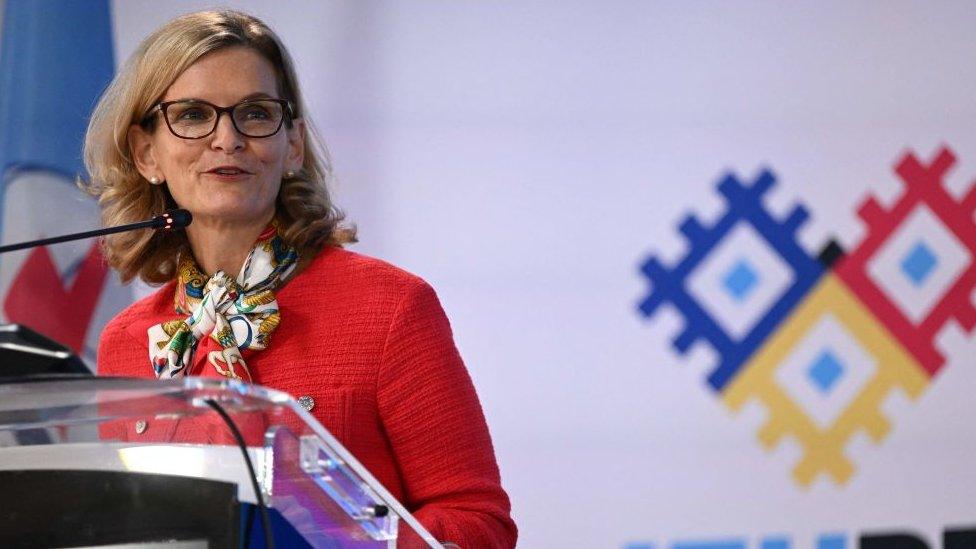The world urgently needs a unified global approach to regulating artificial intelligence (AI), warned Doreen Bogdan-Martin, head of the UN’s International Telecommunications Union (ITU).
She cautioned that fragmented regulatory efforts could deepen existing risks and inequalities.
Bogdan-Martin expressed hope that AI could “benefit humanity” but stressed the critical need for regulation given mounting concerns. These concerns include potential mass job losses, the spread of deepfakes and disinformation, and the fraying of societal fabric due to the rapid evolution of technology.
She emphasised the urgency of establishing “the right framework” and a “global approach.”
Divergent National Strategies and the Need for Dialogue
Her comments follow US President Donald Trump’s unveiling this week of a strategy emphasising minimal regulation to maintain US AI leadership over China.
Trump’s plan includes over 90 proposals, advocating for sweeping deregulation to prevent hindrances to private sector AI development. Bogdan-Martin reserved comment on the US plan, stating she was “still trying to digest” it.
“I think there are different approaches,” she noted, pointing to the EU, Chinese, and now US strategies. She stressed the necessity for these approaches to “dialogue.” A significant challenge, she highlighted, is that “85 per cent of countries don’t yet have AI policies or strategies.”

Existing strategies often focus on innovation, capacity building, and infrastructure investment, but the global debate still needs to determine “how much regulation, how little regulation, is needed.”
Bogdan-Martin, who has spent over three decades at the Geneva-based ITU, believes the agency is well-positioned to facilitate this crucial global dialogue.
She underlined that “the need for a global approach, I think, is critical,” warning that “fragmented approaches will not help serve and reach all.”
As nations and companies race for dominance in the booming AI sector, there’s a risk that precautions might be overlooked, leaving behind those who cannot participate.
Addressing Digital Divides and Gender Gaps in AI
The ITU chief praised the “mind-blowing” advancements in AI and its potential to improve various sectors, from education and agriculture to healthcare.
However, she insisted that these benefits must be shared. Without a concerted effort, she cautioned, AI risks becoming synonymous with “advancing inequalities,” further exacerbating the global digital divide.
“We have 2.6 billion people who have no access to the internet, which means they have no access to artificial intelligence,” Bogdan-Martin pointed out. “We have to tackle those divides if we’re going to have something beneficial to all of humanity.”
As the first woman to serve as ITU secretary-general in the organisation’s nearly 160-year history, Bogdan-Martin also stressed the urgent need to increase women’s participation in the digital space, noting a “huge gap” and a definite lack of women in AI.
The 59-year-old mother of four expressed immense honour in “breaking the glass ceiling” and “paving the path for future generations,” while acknowledging the pressure to “overachieve.”
Backed by the Trump administration for re-election next year when her four-year mandate concludes, Bogdan-Martin expressed eagerness for a second term, stating, “There is a lot to do.”


 Trending
Trending 